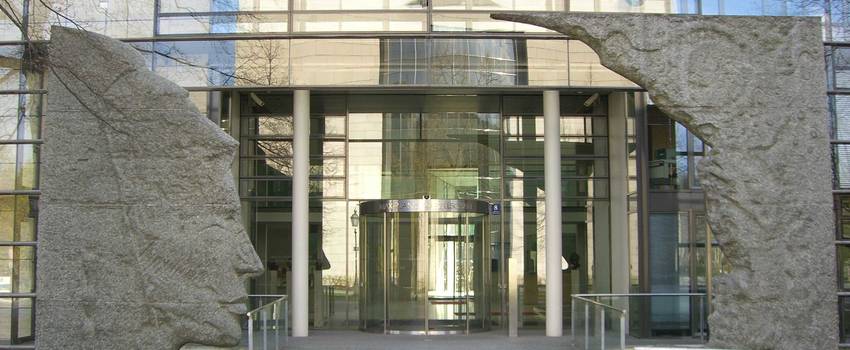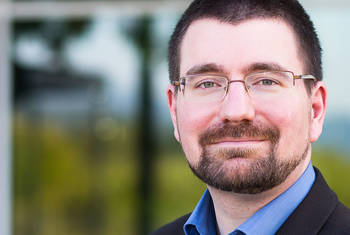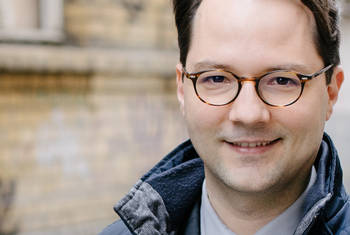Marie-Claire Foblets How Do Moroccans Residing in Different Countries Perceive the Modernized Family Code?
Marie-Claire Foblets is Director of the Department Law & Anthropology at the Max Planck Institute for Social Anthropology in Halle/Saale, Germany, and Honorary Professor of Law & Anthropology at the Martin-Luther-University Halle-Wittenberg, Germany. Her interests include Islam in Europe, religious diversity in a secular context and international family law. Before joining the Max Planck Society, Foblet held teaching positions at the universities of Antwerp and Brussels as well as an Erasmus lectureship on Comparative Islamic Law at Harvard Law School. In 2004, she was awarded the Francqui Prize, the most distinguished scientific award in the humanities in Belgium.
Area of Research
Social Anthropological Analysis, Religious Diversity, European Migration and Asylum Policy, Transnational Citizenship
since 2012
Director of the Department "Law & Anthropology"
Max Planck Society (more details)
Max Planck Institute for Social Anthropology
since 2014
Honorary Professor of Law and Anthropology
Martin-Luther-University Halle-Wittenberg (Martin-Luther-Universität Halle-Wittenberg)
2008-2012
Professor
Catholic University of Leuven
Faculty of Law
2008-2012
Chair
Catholic University of Leuven
Institute for Migration Law and Legal Anthropology
2009
Erasmus Lectureship
Harvard University
Harvard Law School
1998-2003
Head
Catholic University of Leuven
Department of Social and Cultural Anthropology
1995-2008
Professor of Law and Anthropology
Catholic University of Leuven
Faculty of Law and Department of Social and Cultural Anthropology
1993-1995
Associate Professor of Legal Anthropology
Catholic University of Leuven
Faculty of Law
1993-1996
Teaching Associate (Legal Anthropology)
Université Paris I/Sorbonne, Laboratoire d’anthropologie juridique de Paris
1994
Visiting Scholar
University of California, Berkeley
Law School Berkeley, Boalt Hall
1992-2008
Professor of Anthropology (Social and Cultural)
Catholic University of Leuven
Faculty of Political and Social Sciences
1991-2012
Professor of Anthropology (Social and Cultural)
University of Antwerp
Department of Political and Social Sciences
1990-1995
Post-Doctoral Fellowship
Catholic University of Leuven
Department of Social and Cultural Anthropology
1985-1990
Research Assistant
Catholic University of Leuven
Department of Social and Cultural Anthropology
1990
PhD in Social and Cultural Anthropology
Catholic University of Leuven
1985
Master in Anthropology
Catholic University of Leuven
1984
Master in Philosophy
Catholic University of Leuven
1982
Master in Law
Catholic University of Leuven
1979
Bachelor in Philosophy
University of Antwerp
1979
Bachelor in Law
University of Antwerp
- Association for the Study of Islamic Law and the Law in the Middle East (Vereniging voor de Bestudering van het Recht van de Islam en het Midden-Oosten)
- Commission on Legal Pluralism
- Käte Hamburger Kolleg, University Duisburg-Essen
- Laboratorio Diritti Fundamentali (Academy of Sciences Turin, Italy)
- Leuven Institute for Human Rights and Critical Studies
- Leuven Research Group Human Rights & International Justice
- REMEP - International Max Planck Research School on Retaliation, Mediation and Punishment
- UCSIA (Universitair Centrum Sint-Ignatius Antwerpen)
Fellowships
- Advisory Board of the ERC Starting Grant Research Project: Directions in Religious Pluralism in Europe: Examining Grassroots Mobilisations in Europe in the Shadow of European Court of Human Rights Religious Freedom Jurisprudence (2013-2017)
- European Research Council (ERC) Advanced Grant Review Panel for the Panel SH - Environment, Space and Population in the Advanced Grant 2014 Evaluation (2012-2015)
- Erasmus Lectureship (Harvard/Boston) on the History and the Civilization of Flanders, Scholar Elected (2009)
- Research Fellow at the Bellagio Center of the Rockefeller Foundation & German Marshall Fund Foundation (Special Program on Migration & Integration Policies) (2006)
Prizes
- Awarded Best FP7 Research Project and Accomplishment in the Humanities, KU Leuven & EU Commission (DG Research) (2013)
- Nominee of the Royal Flemish Academy of Belgium for Science and the Arts for the 2014 Nayef Al-Rodhan Prize for Transcultural Understanding, Royal Flemish Academy of Belgium for Science and the Arts (2013)
- Winner of the Francqui Price (Human Sciences) (2004)
 © Maximilian Dörrbecker
© Maximilian Dörrbecker
Max Planck Society
"The Max Planck Society is Germany's most successful research organization. Since its establishment in 1948, no fewer than 18 Nobel laureates have emerged from the ranks of its scientists, putting it on a par with the best and most prestigious research institutions worldwide. The more than 15,000 publications each year in internationally renowned scientific journals are proof of the outstanding research work conducted at Max Planck Institutes – and many of those articles are among the most-cited publications in the relevant field." (Source)
Institute
Max Planck Institute for Social Anthropology
"The Max Planck Institute for Social Anthropology is one of the world’s leading centres for research in socio-cultural anthropology. It was established in 1999 by Chris Hann and Günther Schlee, and moved to its permanent buildings on Advokatenweg 36 in Halle/Saale in 2001. Marie-Claire Foblets joined the Institute as its third Director in 2012. Common to all research projects at the Max Planck Institute is the comparative analysis of social change; it is primarily in this domain that its researchers contribute to anthropological theory, though many programmes also have applied significance and political topicality. Fieldwork is an essential part of almost all projects. More than 175 researchers work at the Institute, the great majority in one of its three Departments: ‘Law & Anthropology’ (Foblets); ‘Resilience and Transformation in Eurasia’ (Hann); ‘Integration and Conflict’ (Schlee). The Institute’s Library, the Research Coordination Unit, the IT Department and administrative staff assist the researchers in their work. The Institute has its own Guesthouse, and organises regular seminars and international conferences. It cooperates closely with anthropologists and other colleagues at the Martin Luther University, Halle-Wittenberg, and at the University of Leipzig" (Source)
Map
In 2004, Moroccan authorities updated the Moroccan Family Code to reflect the needs of modern families. This was considered a revolutionary move at the time. The research presented in this video sets out to investigate how, after ten years, this modernized code has been implemented in people's lives not only in Morocco but especially in the lives of Moroccans residing in European countries. To get a full picture the researchers applied a combination of ethnographic methods and methods from legal studies. MARIE-CLAIRE FOBLETS explains how the scientists analyzed the case law, the response of consulates in European countries to people seeking advice as well as the decision of judges in Morocco. The findings indicate that while the courts were first uneasy with applying the new code they adjusted over time. Furthermore, different national traditions have a major influence on the implementation of the Moroccan Family Code in Europe.
LT Video Publication DOI: https://doi.org/10.21036/LTPUB10258
Le Code Marocain de la Famille. Incidences au Regard du Droit International Privé en Europe
- Marie-Claire Foblets and Jean-Yves Carlier
- Published in 2005









